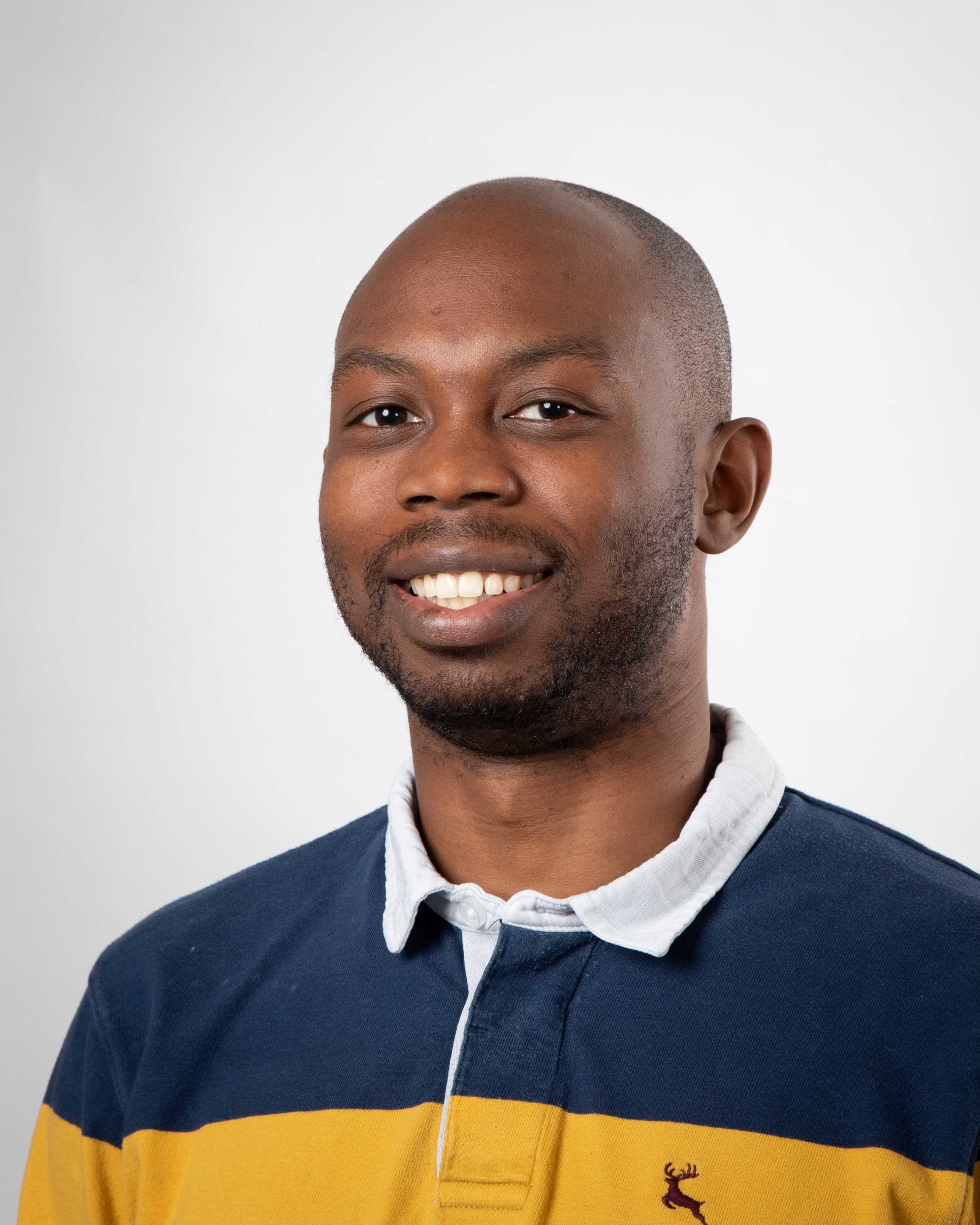
Submitted by A.S. Quenault on Wed, 16/10/2024 - 13:40
Meet Folarin Oyebolu, Research Associate working with William Astle. Folarin discusses his route to biostatistics research, his early influences, and what Black History Month means to him.
I have taken a meandering path to the BSU with a throughline of biopharma and biochemical engineering. My undergraduate was in Biochemical Engineering at University College London. Dr Suzy Farid (now Professor and Head of Department there), who led the design project module and was one of my supervisors on my research project, suggested that I do a PhD when I finished my degree. This led me to the University of Warwick where I did my doctorate in Operational Research under Professor Jürgen Branke and Dr Suzy Farid, focusing on scheduling in biopharmaceutical manufacturing.
After that, I worked on a Knowledge Transfer Partnership (KTP) project with the University of Manchester and a firm called Biopharm Services, to augment the firm’s software with some optimisation algorithms. When that project ended, I took a job at the firm full-time for two years before I then made the move to the BSU at the beginning of 2022.
When I was very young, I wanted to be a ‘scientist’. The other choice was to be an Olympic swimmer but my grandparent once remarked that it wouldn’t pay the bills, so out went that option! The swimming likely wouldn’t have panned out, but my early influences would still have remained the same – my family; my paternal side had engineers and my maternal side had doctors, so it feels natural that I would eventually converge on to biochemical engineering and more recently, biostatistics research.
"In addition to my parents and family in general, I have worked with and come across many talented people who have provided inspiration through encouragement or by example."
If I’m being honest, I didn’t really know that biostatistics, as a distinct field, existed before I applied for my role here at the BSU. As I was in the biopharma industry and also worked on typical Operational Research (OR) problems such as optimisation and simulation modelling, I had come across some of the topics in biostatistics in different contexts and to varying degrees of detail. For example, the design and manufacturing of personalised medicine was an emerging theme in biopharma during my studies and previous work, so it is fascinating to witness from within the field of biostatistics, the research that goes into identifying potential targets for personalisation (or stratification) of therapeutics.
Although the work I’m doing at the BSU does not really use my biopharma background, it heavily utilises my previous OR experience and it is partly the OR aspect that drew me to the role and project. I also enjoy the exposure to the larger biostatistics research areas that I had not encountered previously.
"In a way, it feels like biostatistics chose me as opposed to the other way around."
My work involves researching algorithms that would better match donated blood within the national blood service, NHS Blood & Transplant (NHSBT), to transfusion dependent patients, specifically patients with Sickle Cell Disorder (SCD). The aim is to develop methods that will reduce the risk of harm to the patients while also minimising waste and minimising shortages of blood. I am using optimisation and simulation techniques to tackle the problem, and part of the research challenge is in the large-scale nature of the problem.
"A large part of the reason I am interested in this project is because SCD is a disease that predominantly affects people with African or Caribbean ancestry. People with SCD are often reliant on blood transfusions and many have no other treatment options."
The idea behind this work is to routinely utilise the extended blood types of both patients and donors, which can be inferred from their genetic data, to make the matches and blood allocations. This is all part of a larger project called Haem-Match which also aims to implement this within NHSBT and in hospitals.
On a micro-level, the accomplishment of solving a research question that also solves a challenging real-world problem is a major motivator for me. In the broader context, I am additionally motivated by the desire to improve the health of the public and prosperity of society.
"I hope that my current research will help to close some of the racial health inequality in the UK."
I grew up in Nigeria so I had not thought about Black History month a lot until some time after moving to the UK. It is serendipitous that it falls in the same month as Independence Day in Nigeria. So, it makes it easy to reflect on the achievements of Nigerians in Nigeria and in the diaspora, like I was taught in school.
However, I realise that my experiences and perceptions are heavily influenced by my identity and only recently becoming a member of the diaspora. Therefore I am prompted to think about any blindspots I have with respect to other Britons of Black heritage.
I do want to acknowledge, but not dwell on, the negative experiences of people who are Black and are of other ethnic minority groups.
"So, to me, the meaning of Black History Month is to showcase, in positive ways, the various histories and cultures of Black, Asian, Minority and Mixed Ethnic Britons to everyone and I hope it will continue the progress of pushing society (in the UK and elsewhere) to be more tolerant, inclusive and egalitarian."


